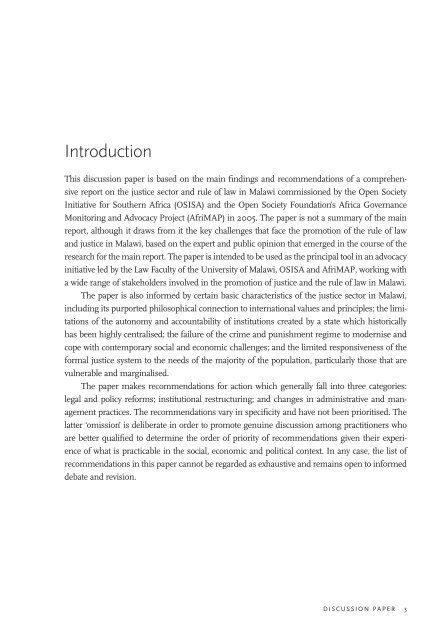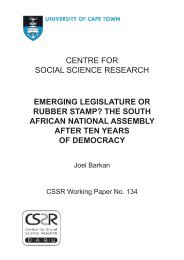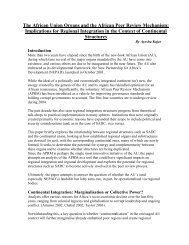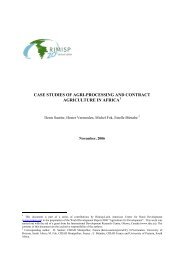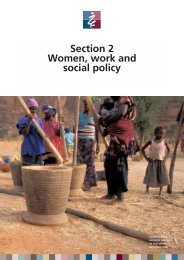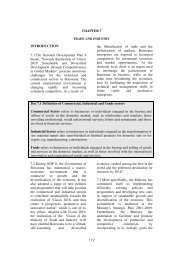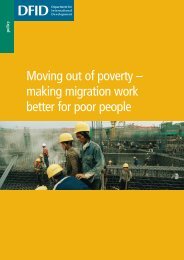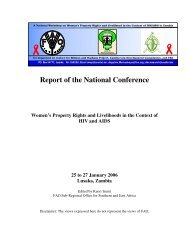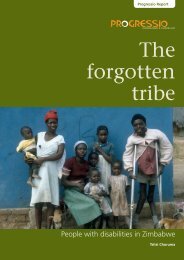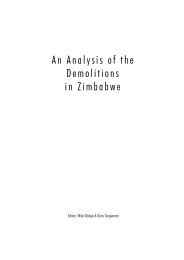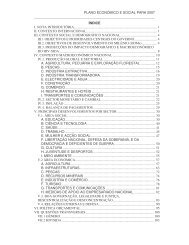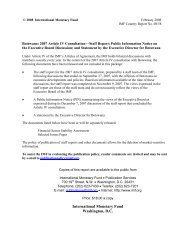Justice Sector and the Rule of Law - AfriMAP
Justice Sector and the Rule of Law - AfriMAP
Justice Sector and the Rule of Law - AfriMAP
You also want an ePaper? Increase the reach of your titles
YUMPU automatically turns print PDFs into web optimized ePapers that Google loves.
This discussion paper is based on <strong>the</strong> main findings <strong>and</strong> recommendations <strong>of</strong> a comprehensivereport on <strong>the</strong> justice sector <strong>and</strong> rule <strong>of</strong> law in Malawi commissioned by <strong>the</strong> Open SocietyInitiative for Sou<strong>the</strong>rn Africa (OSISA) <strong>and</strong> <strong>the</strong> Open Society Foundation’s Africa GovernanceMonitoring <strong>and</strong> Advocacy Project (<strong>AfriMAP</strong>) in 2005. The paper is not a summary <strong>of</strong> <strong>the</strong> mainreport, although it draws from it <strong>the</strong> key challenges that face <strong>the</strong> promotion <strong>of</strong> <strong>the</strong> rule <strong>of</strong> law<strong>and</strong> justice in Malawi, based on <strong>the</strong> expert <strong>and</strong> public opinion that emerged in <strong>the</strong> course <strong>of</strong> <strong>the</strong>research for <strong>the</strong> main report. The paper is intended to be used as <strong>the</strong> principal tool in an advocacyinitiative led by <strong>the</strong> <strong>Law</strong> Faculty <strong>of</strong> <strong>the</strong> University <strong>of</strong> Malawi, OSISA <strong>and</strong> <strong>AfriMAP</strong>, working witha wide range <strong>of</strong> stakeholders involved in <strong>the</strong> promotion <strong>of</strong> justice <strong>and</strong> <strong>the</strong> rule <strong>of</strong> law in Malawi.The paper is also informed by certain basic characteristics <strong>of</strong> <strong>the</strong> justice sector in Malawi,including its purported philosophical connection to international values <strong>and</strong> principles; <strong>the</strong> limitations<strong>of</strong> <strong>the</strong> autonomy <strong>and</strong> accountability <strong>of</strong> institutions created by a state which historicallyhas been highly centralised; <strong>the</strong> failure <strong>of</strong> <strong>the</strong> crime <strong>and</strong> punishment regime to modernise <strong>and</strong>cope with contemporary social <strong>and</strong> economic challenges; <strong>and</strong> <strong>the</strong> limited responsiveness <strong>of</strong> <strong>the</strong>formal justice system to <strong>the</strong> needs <strong>of</strong> <strong>the</strong> majority <strong>of</strong> <strong>the</strong> population, particularly those that arevulnerable <strong>and</strong> marginalised.The paper makes recommendations for action which generally fall into three categories:legal <strong>and</strong> policy reforms; institutional restructuring; <strong>and</strong> changes in administrative <strong>and</strong> managementpractices. The recommendations vary in specificity <strong>and</strong> have not been prioritised. Thelatter ‘omission’ is deliberate in order to promote genuine discussion among practitioners whoare better qualified to determine <strong>the</strong> order <strong>of</strong> priority <strong>of</strong> recommendations given <strong>the</strong>ir experience<strong>of</strong> what is practicable in <strong>the</strong> social, economic <strong>and</strong> political context. In any case, <strong>the</strong> list <strong>of</strong>recommendations in this paper cannot be regarded as exhaustive <strong>and</strong> remains open to informeddebate <strong>and</strong> revision.


